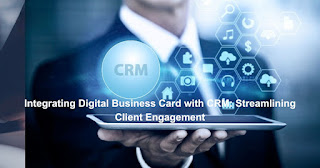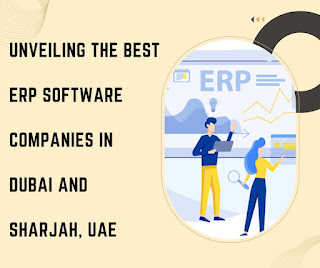Integrating Digital Business Card with CRM: Streamlining Client Engagement
1. What is a Digital Business Card?
A Digital Business
Card is essentially an electronic form of the traditional business
card, containing a person's name, business affiliation, contact number, email,
and other pertinent details. The advantages are evident – they're eco-friendly,
easy to share, and can be updated in real time. Moreover, with embedded links
and QR codes, one can easily redirect their contacts to websites, portfolios,
or social media profiles.
2. CRM Systems: The Backbone of Modern Business
Operations
CRM systems have become indispensable tools for businesses.
They are designed to manage and analyze customer interactions and data
throughout the customer lifecycle. The primary goal is to improve business
relationships, streamline processes, and subsequently drive sales growth.
3. Integrating Digital Business Cards with CRM
A. Seamless Data Entry
The initial step after obtaining a business card, whether digital or traditional, is to input the data into a system that can be
easily accessed. With the integration of a Digital Business Card into a
CRM, the process of data entry becomes instantaneous. When you receive or
share your digital card, the information gets updated in the CRM.
B. Always Updated Information
One of the problems with traditional business cards is the
static nature of the information. If there's any change, one must print new
cards. On the other hand, a Digital Business Card can be updated in real-time.
When integrated with CRM, any change made on the card reflects immediately in
the CRM system, ensuring the data remains current.
C. Enhanced Engagement Metrics
With this integration, businesses can track how many times
the Digital Business Card was viewed, shared, or if any links were clicked.
Such metrics, when fed into a CRM, can offer invaluable insights about
potential leads or clients.
D. Simplified Follow-ups
Post an initial meeting or interaction; timely follow-ups
are crucial. Automated follow-up emails can be set up with the Digital Business Card and CRM integration. It not only reduces manual effort but ensures
no potential lead is overlooked.
4. Benefits for Client Engagement
- Personalized
Interactions: With the data from Digital Business Cards directly fed
into CRMs, businesses can tailor their interactions based on the client's
profile and preferences.
- Instant
Accessibility: No more sifting through piles of cards or multiple
directories. The data is readily available, ensuring that client
interactions are prompt and efficient.
- Eco-Friendly
Approach: In an age where sustainability is key, digital cards offer
an environmentally-friendly alternative, which also positions the brand in
a positive light.
Conclusion
In conclusion, the fusion of Digital Business Card with CRM
systems is a game-changer for businesses aiming for efficiency and enhanced
client engagement. It not only simplifies internal processes but ensures that
every client or potential lead is catered to with utmost precision and
personalization. As technology continues to evolve, such integrations will be
pivotal in determining the success of businesses in the digital age.




Comments
Post a Comment